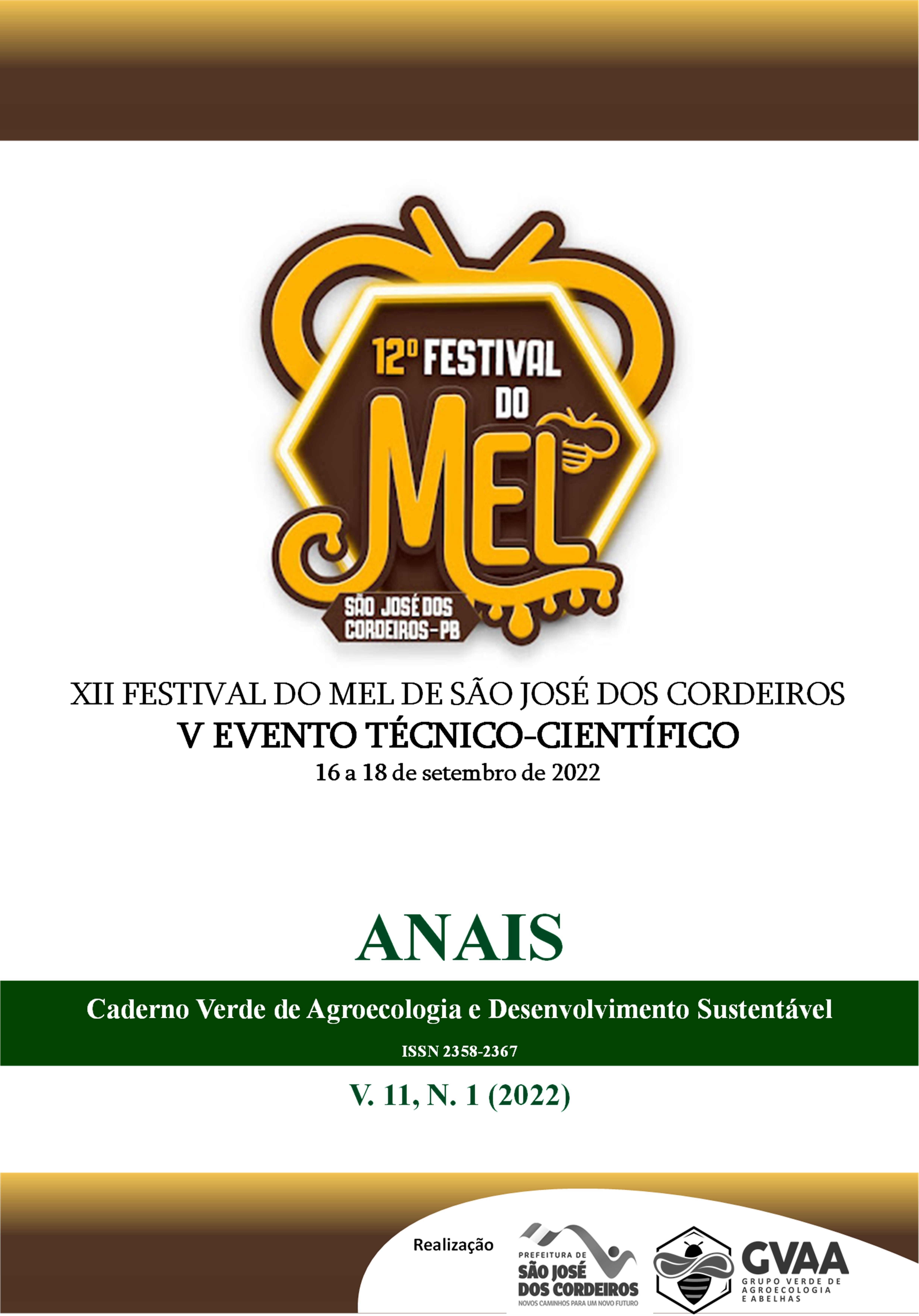Constraints in the process of registration of honey warehouses in Paraiba and proposals for solutions to these problems
Keywords:
Beekeeping, Diagnosis, ProducersAbstract
Contributing with social and economic benefits, beekeeping in Paraiba has been conquering, over the years, greater space in the market, emerging as a strategy for the survival of the family farmer, serving as a source of supplementing their income. The objective of the present work was to trace the honey enterprises located throughout the state of Paraiba, identifying structural problems and their conduct, and presenting proposals to minimize these problems, in addition to proposing recommendations that help to meet social, economic needs. and technologies that generate limitations in the state of Paraiba. The diagnosis was performed in all four mesoregions of the State of Paraiba. To carry out the activities, a form/interview was previously established. The research took place in the Associations and Cooperatives of producers and companies in the beekeeping sector. The questionnaires were applied directly with the legal representative at the honey warehouse. During the application of the questionnaires, the georeferencing of all the places visited was carried out. The collected data were tabulated and underwent descriptive statistical analysis. The results show an increase in activity in the last ten years. In the year 2020, according to the survey, more than 250 tons of honey were processed in all establishments throughout the state of Paraiba. Furthermore, it should be noted that associativism is the way to achieve growth and strengthen beekeeping in Paraiba. Due to the lack of management and planning on the part of the directors of some Associations and Cooperatives, as a way of solving this problem, it will be necessary to improve the associative organizations of beekeepers, through training in management and specialized technical assistance, making use of technologies in the extraction and processing of bee products not yet explored, such as: propolis, pollen, royal jelly and apitoxin; and establish new internal commercialization channels in the state of Paraiba.
Downloads
Published
How to Cite
Issue
Section
License
Termo de cessão de direitos autorias
Esta é uma revista de acesso livre, em que, utiliza o termo de cessão seguindo a lei nº 9.610/1998, que altera, atualiza e consolida a legislação sobre direitos autorais no Brasil.
O(s) autor(es) doravante designado(s) CEDENTE, por meio desta, publica a OBRA no Caderno Verde de Agroecologia e Desenvolvimento Sustentável, representada pelo Grupo Verde de Agroecologia e Abelhas (GVAA), estabelecida na Rua Vicente Alves da Silva, 101, Bairro Petrópolis, Cidade de Pombal, Paraíba, Brasil. Caixa Postal 54 CEP 58840-000 doravante designada CESSIONÁRIA, nas condições descritas a seguir:
O CEDENTE declara que é (são) autor(es) e titular(es) da propriedade dos direitos autorais da OBRA submetida.
O CEDENTE declara que a OBRA não infringe direitos autorais e/ou outros direitos de propriedade de terceiros, que a divulgação de imagens (caso as mesmas existam) foi autorizada e que assume integral responsabilidade moral e/ou patrimonial, pelo seu conteúdo, perante terceiros.
O CEDENTE mantêm os direitos autorais e concedem à revista o direito de divulgação da OBRA, com o trabalho simultaneamente licenciado sob a Licença Creative Commons do tipo atribuição CC-BY.
O CEDENTE têm autorização para distribuição não-exclusiva da versão do trabalho publicada nesta revista.
O CEDENTE têm permissão e são estimulados a publicar e distribuir seu trabalho online (ex.: em repositórios institucionais ou na sua página pessoal) a qualquer ponto antes ou durante o processo editorial, já que isso pode gerar alterações produtivas, bem como aumentar o impacto e a citação do trabalho publicado.








